Does insurance cover rehab for addiction? It’s one of the most common questions people have regarding rehab. Most often, the answer is yes — however, many factors play a role in that. Our team at Vanguard Behavioral Health can help you to determine if you have coverage in place.
Consider for a moment how expensive addiction itself is. There’s the cost of purchasing the substance, whether that’s alcohol or any type of drug; then there’s the price you face every time you cannot go to work or meet other obligations because of being ill. Addiction can hinder both work and personal relationships, preventing a person from achieving his or her goals.
The toll of secondary factors can also weigh on you. For example, you may have to face criminal charges for your use of these substances, or you could be facing complicated legal matters after a DUI. Many people also recognize that their health is failing due to these substances. Emergency medical care after an overdose; treatment for liver, kidney or lung disease; and complications to your heart and brain health can be very costly.
The cost of addiction is high, and often if you look at just the monetary component of that cost, you’ll see that getting care in an addiction treatment center could be more affordable than you realize. The good news is that with most insurance companies, addiction treatment is covered, at least in part.
The Types of Addiction Covered Under Most Insurance Plans
Insurance covers addiction treatment for most types of substance use disorders and mental health complications. While all insurance companies break down what’s covered and not covered within their policy details, typically, anyone who has an addiction, no matter what that addiction is, can receive care for it if the health insurance policy covers addiction.
Typically, insurance coverage applies to all types of addiction, no matter the type. The treating provider must show that an addiction is present, which can be done by looking at the signs and symptoms of addiction, continued use and the health complications that have developed.
Drug and Alcohol Addiction Treatment
Some of the most common types of coverage you’ll find include the following.
- Alcohol addiction
- Amphetamine addiction
- Cocaine addiction
- Fentanyl addiction
- Benzodiazepine addiction
- Ambien addiction
- Opioid addiction
- Marijuana addiction
- Methadone addiction
- Kratom addiction
- Stimulant addiction
- Valium addiction
- Xanax addiction
Mental Health Addiction Treatment
Many people with drug or alcohol addiction also face mental health conditions. Programs that treat these conditions, often referred as a dual-diagnosis treatment plan, will provide treatment for both addiction and mental health disorders. This type of treatment may include help for:
- Depression
- Anxiety
- Bipolar disorder
- Post-traumatic stress disorder (PTSD)
- Schizophrenia
- Panic disorders
Health insurance plans cannot charge you more for mental health care services than they would any other type of care. That means that access to mental health care is provided to those who are facing a wide range of health matters in an equal manner.
Some people believe that health insurance companies will not provide coverage for substance abuse treatment or mental health treatment because these are “bad” or “controllable” conditions. This is false on both levels: Treatment for mental health and substance abuse is available through most health insurance plans and treated in the same way that other types of illness, injury or care are.
Types of Rehab and Treatments Typically Covered by Insurance Companies
Most insurance plans cover addiction treatment for the level of care a person needs, which can vary. Some people may need more intense care than others do. It is not up to the insurance company to decide what type of care you need, but it does put in place some rules about when it will approve more aggressive treatment options. This is often based on a person’s symptoms and diagnosis.
Some of the types of care that insurance companies may cover include the following:
Inpatient Care
Inpatient care, sometimes referred to as residential treatment, involves a person living at the treatment center for a set number of days or until specific conditions are met. Inpatient care is the gold standard for many people with moderate to severe drug addiction.
Outpatient Care
Outpatient care can be an appropriate option in many situations. This type of care often includes living at home but coming into a treatment center on a set basis to get counseling and support. The frequency of outpatient care coverage can differ between health insurance plans.
Partial Hospitalization Program (PHP)
PHP coverage through health insurance is often available as well. This type of coverage requires more frequent and intense care in a treatment center, but a person is still able to go home at night. It’s an elevated, more intense level of addiction and mental health treatment than outpatient care.
The exact level of coverage provided by your health insurance plan is dependent on that plan and the specific details provided.
What to Do if You Don’t Have Insurance to Cover Rehab
Insurance covers addiction treatment in some cases. However, some people do not have insurance or may have a plan with significant and limiting restrictions. If you don’t have private health insurance, don’t let this stop you from getting the help you need.
There are some free rehab and state-funded rehab options available in most areas that can provide you with the support you need. Turn to state-specific financial assistance programs that can help you if you do not have any health insurance and cannot afford it. Look into Medicaid options, for example.
There could be other ways to pay for addiction treatment if you do not have insurance coverage or your coverage is too limited:
- Use a personal loan: You may be able to get financing to help cover the cost of your medical care. There are medical lenders available who specialize in this area.
- Ask family: Your family may be more willing than you realize to help you get help for addiction through financial support. Often, it’s not easy to ask for help, but if you are dependent on others or are struggling, others may want to help you.
- Talk to your employer: Some employers offer special services and packages to help cover addiction treatment for employees who are not under their health insurance provision.
- Grants could be available: You may find some scholarships or grants for addiction treatment available in your state.
Getting addiction treatment without insurance is also an option. You may be able to pay out of pocket for the care you need or put in place a pay-as-you-go type of plan.
Allow Vanguard Behavioral Health to Help You
Insurance covers rehab for alcohol and drug addiction in most cases, but you don’t have to guess about this. Instead, contact our admissions counselors at Vanguard Behavioral Health. We can provide you with verification of your insurance, including the type and level of care you can obtain from our treatment center using your coverage. We may also be able to help you with other types of payment options for the care you need.
We offer care throughout the region, including Tucson, Arizona and Albuquerque, NM. Reach out to us now to learn more about the level of care we can provide so you can start on the path of wellness.








